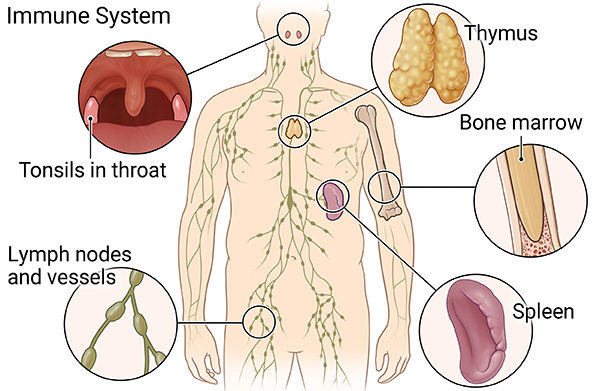Immunotherapy: What Is It?
Your immune system protects you from illness and foreign substances that can harm you.

Scientists have found a way to use the body's immune system to help treat or prevent many health problems. This treatment is known as immunotherapy.
Uses of immunotherapy
Immunotherapy may be used to:
-
Prevent illnesses. Routine vaccines are a type of immunotherapy. Vaccines get your immune system to learn to respond to a possible infection. Then your immune system will fight it off quickly if it ever sees it in the future. Vaccines are made of tiny amounts of weakened or dead viruses and bacteria. So they shouldn't make you sick.
-
Prevent cancer. Cancer vaccines help protect against viruses that can cause some cancers. One example is the vaccine for human papillomavirus. This virus can cause cervical cancer, as well as other cancers.
-
Control asthma and allergy symptoms. Immunotherapy shots are often given if you have severe environmental allergies or asthma. The shots start with a small amount of allergen. This helps your immune system build up a tolerance to that allergen. You are then less sensitive to the allergen and have fewer symptoms. An oral form of immunotherapy is available for some environmental allergies. Talk with your doctor to see which form of immunotherapy is best for you.
-
Treat or manage cancer. Immunotherapy may be used with other treatments to help them work better. It may be used to treat advanced cancer when other treatments have not worked.
Online Medical Reviewer:
Deborah Pedersen MD
Online Medical Reviewer:
Jessica Gotwals RN BSN MPH
Date Last Reviewed:
9/1/2025
© 2000-2025 The StayWell Company, LLC. All rights reserved. This information is not intended as a substitute for professional medical care. Always follow your healthcare professional's instructions.